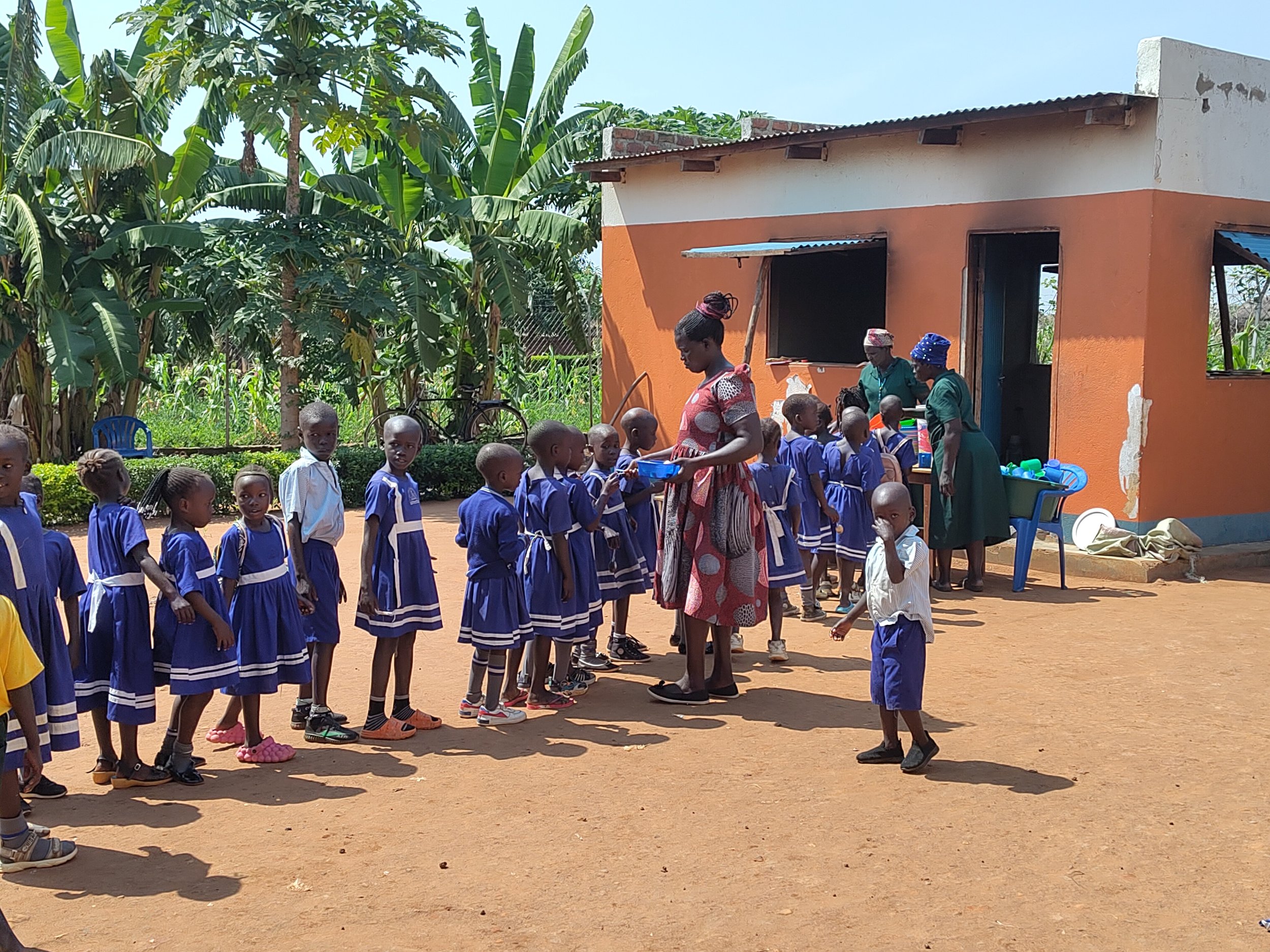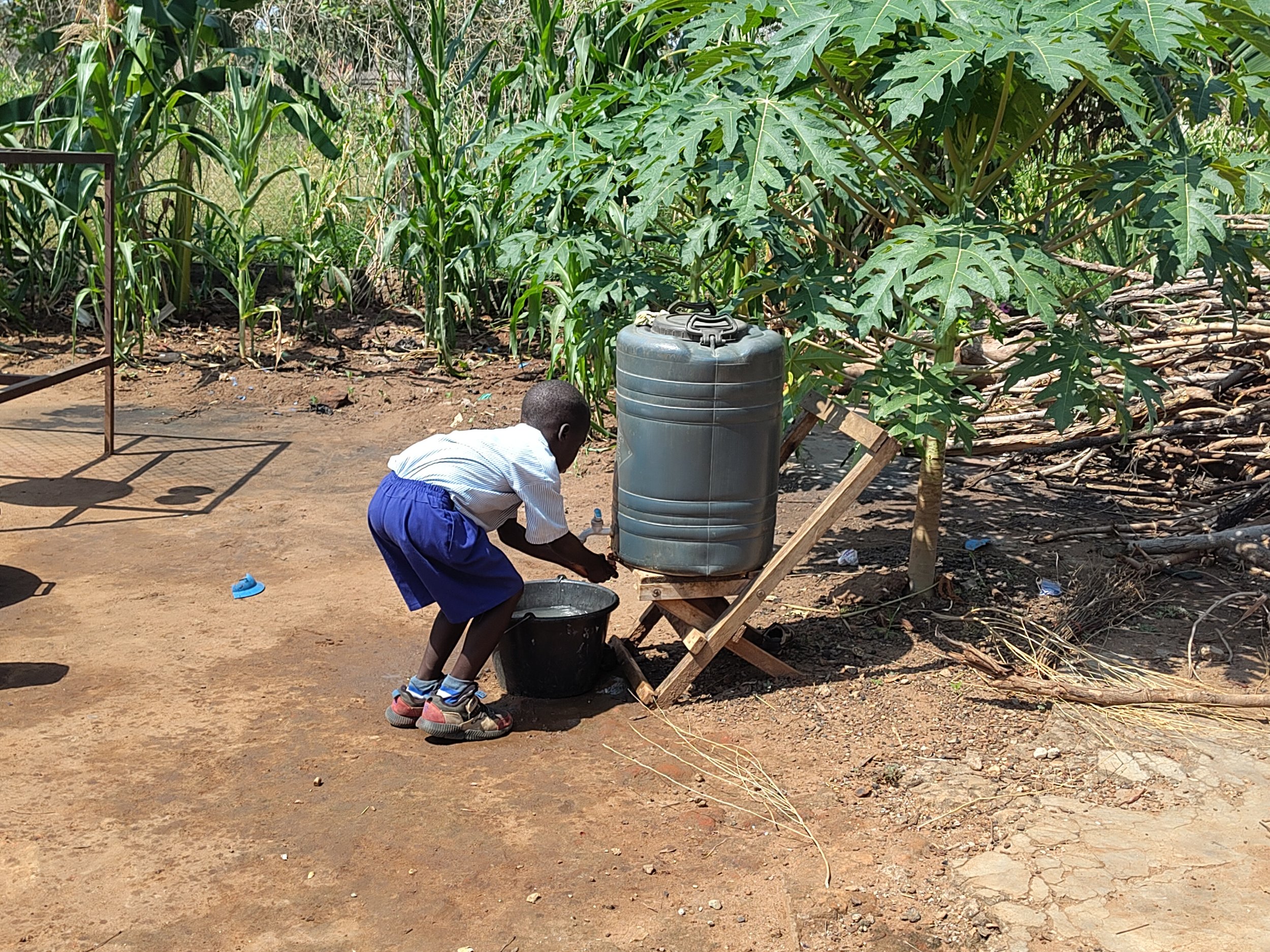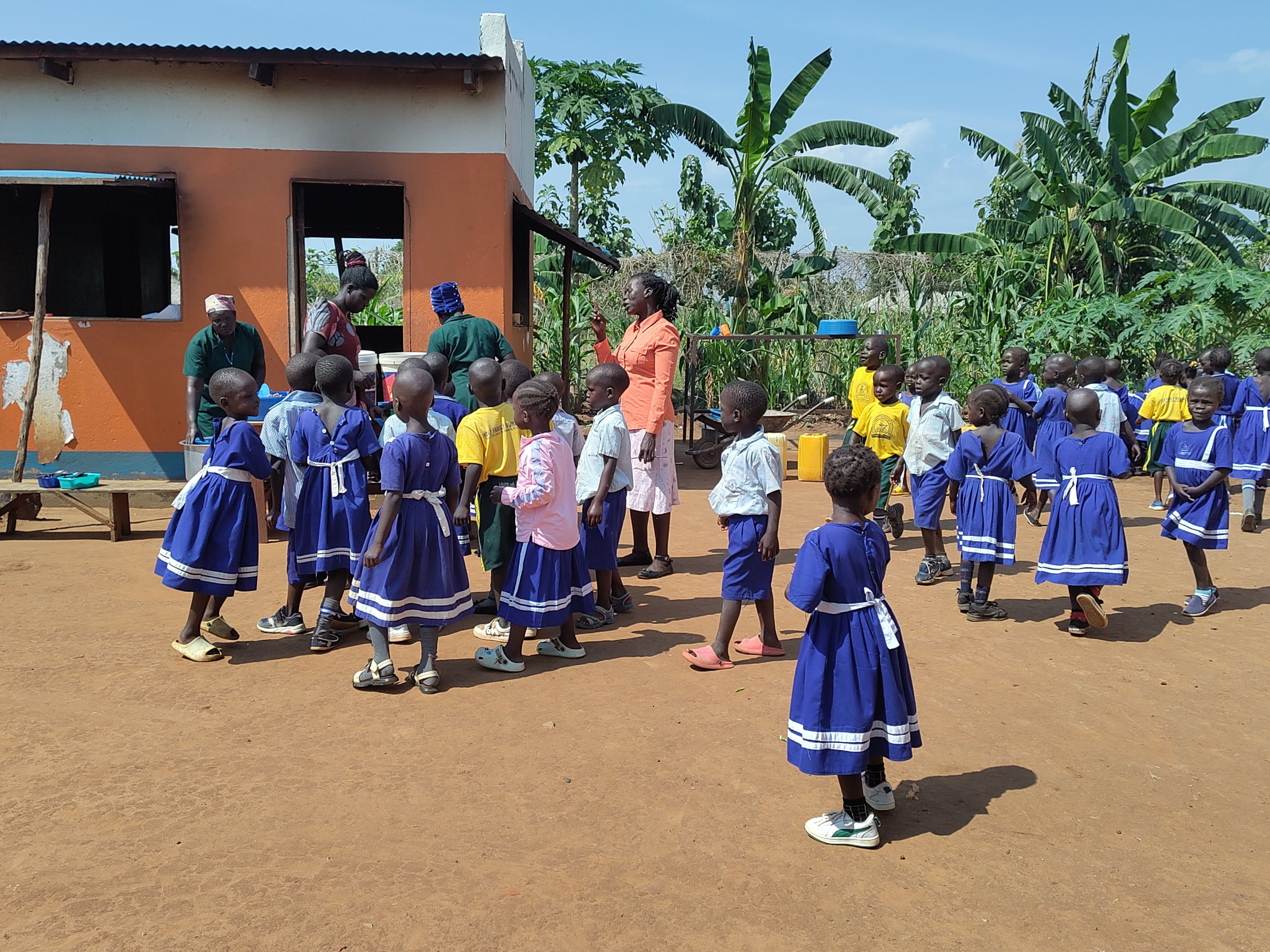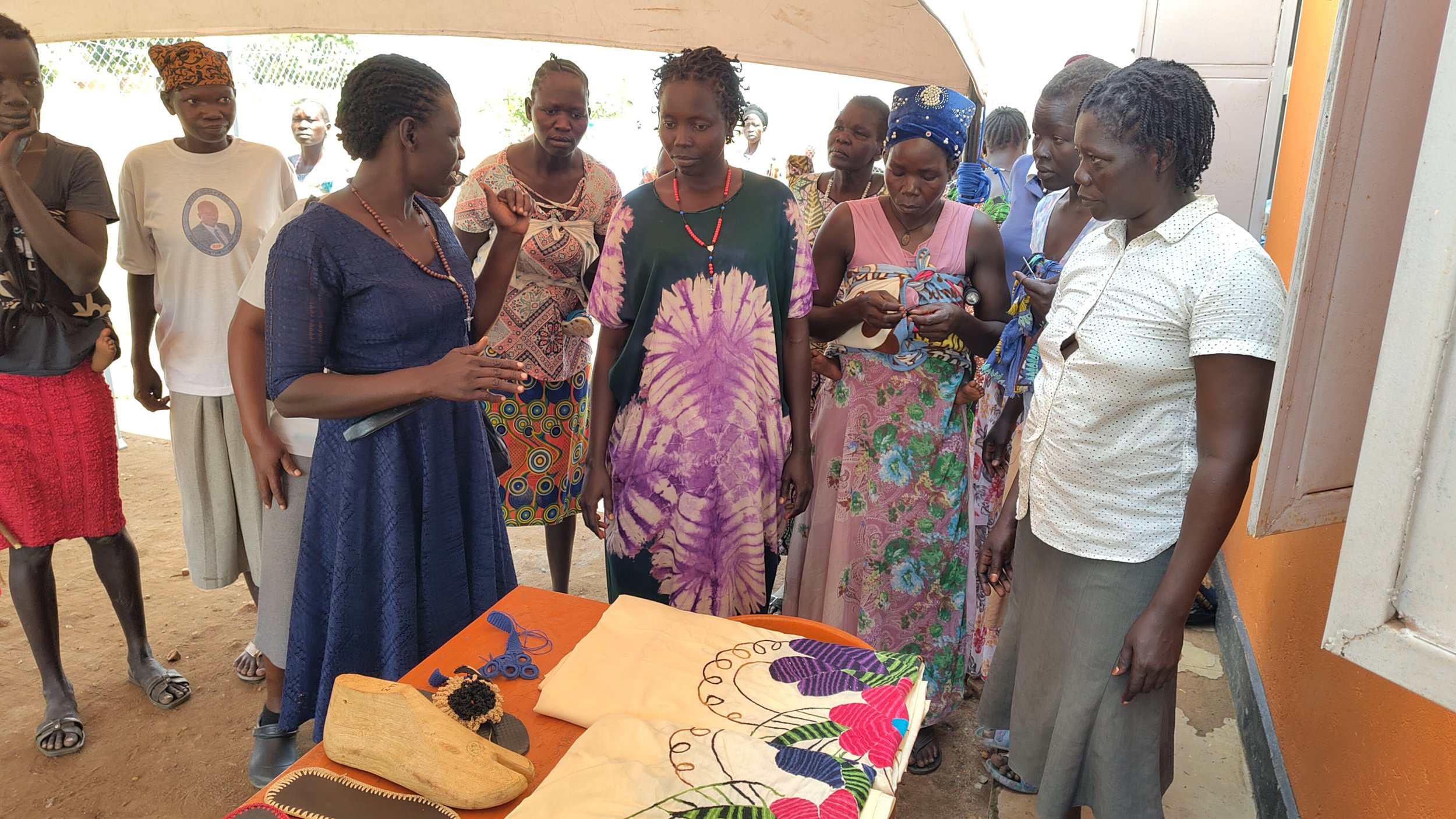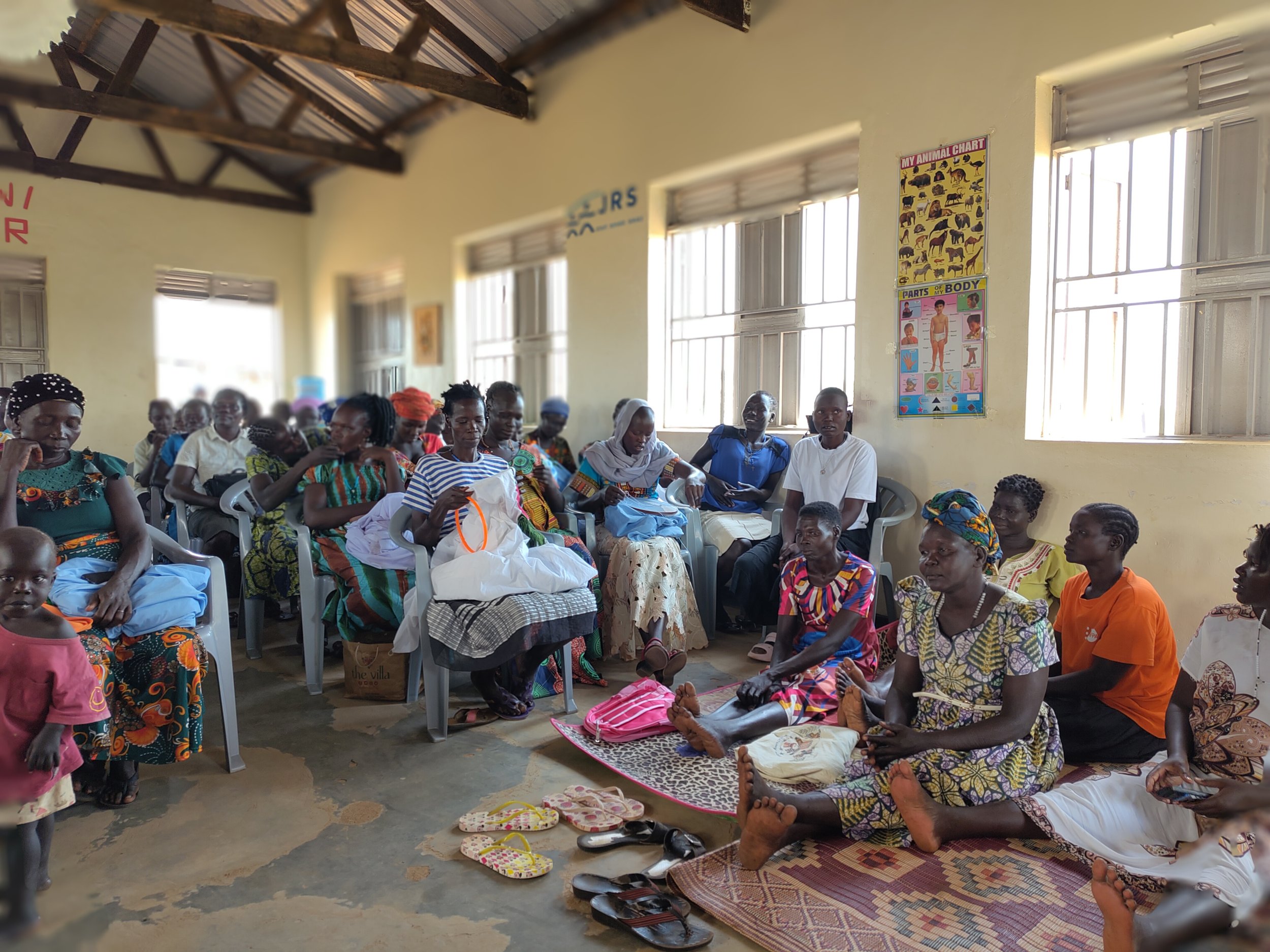
Our Organizations
CABRINI MINISTRIES ESWATINI
Cabrini Ministries (CM) is a Catholic community care organization. Legally established in 2006, CM was built on the foundations of the work started by the Missionary Sisters of the Sacred Heart of Jesus (MSC), who arrived in Eswatini in 1971 to respond to the needs of the people.
-
Restoring life (kubuyisela imphilo)
-
To share the love of Jesus Christ by promoting the well-being of individuals and families through comprehensive integrated health care, education and social services to the most poor and vulnerable.
-
Hope (Kwetsemba)
Mercy (Sihawu)
Passion (Kutinikela)
Quality (Lizinga)
Justice (Ubulungiswa)
Respect/empathy (Ubuntu)
CM’s approach to service delivery is family centered in a comprehensive and integrated family manner. Over the past year, services provided to the communities included homestead assessments; case management, gender-based violence (GBV) services; primary healthcare provision; cervical cancer screening, treatment and referral; counseling; educational assistance; learning and development through play; education resource hub, and community education. Whilst the communities we work in are gradually developing, there are still underlying issues e.g. GBV and poverty. As an organization we continue to strengthen community education to ensure that the community is sensitized on GBV. We also conduct case management and family assessments for purposes of information gathering as means of providing a comprehensive package of services.
Some of the staff come from the communities we serve which makes it easy for CM to understand challenges faced by the population and to collaborate with community structures. CM understands that much can be done through collaborating with other stakeholders and, as such, we collaborate and coordinate our activities with stakeholders such as the Ministry of Health, the Department of Social Welfare (DSW), CANGO’s Children’s Consortium, hospitals and clinics, police, local and international NGOs and donors.
-
Education interventions aim to promote opportunities through education, training and livelihoods. They increase students' learning outcomes at various levels, especially early grade reading achievement (of the primary age population) and increasing the workforce skills and employability skills of the youth.
-
The school has 3 class rooms and hosts 90 children from 3 to 6 years of age every year. Children from the settlement attend school every morning from Monday to Friday and get nutritious meals. Children also get health check ups at the beginning of every term and referral for vaccination and medical attention, in order to ensure a holistic development.
Teachers adopt a Learn through play approach to enhance the learning environment, and address basic emotional and nutritional needs.
-
Every year around 20 students are supported with school fees, uniforms and school materials.
-
The Resource Hub offers free education resources to children, youth and teachers, such as books, internet access, reading club, etc. to help them with research and improving their skills.
-
CM provides ECCD training for teachers and parents for them to play an active and constructive role in promoting early education and monitoring proper child growth and development.
-
Healthcare services aim to improve the well-being of the communities we serve and mitigate the negative effects of HIV/AIDS, TB and other infections, for them to live a quality and productive life.
-
The clinic provides basic healthcare services to more than 15,000 people every year, including HIV and TB screening, cervical cancer screening. Health education is also provided on a daily basis to clients accessing the clinic.
Children below 6 months with SAM are followed by BJCL staff through the Outreach Therapeutic Program (OTP), so that they can be breastfed at home by their mothers.
-
The center provides support to children living with disabilities and their parents and caregivers, to ensure they can develop to their full potential and be integrated in their communities. Sessions of physical therapy and sign language are offered, as well as referrals to additional services.
-
CM interventions focus on three areas which include provision of basic services, GBV (Gender Based Violence) response management and economic strengthening interventions.
Services include support for obtaining birth registration and certificates, awareness on HIV, awareness and management of GBV and abuse cases, entrepreneurship training for economic empowerment.

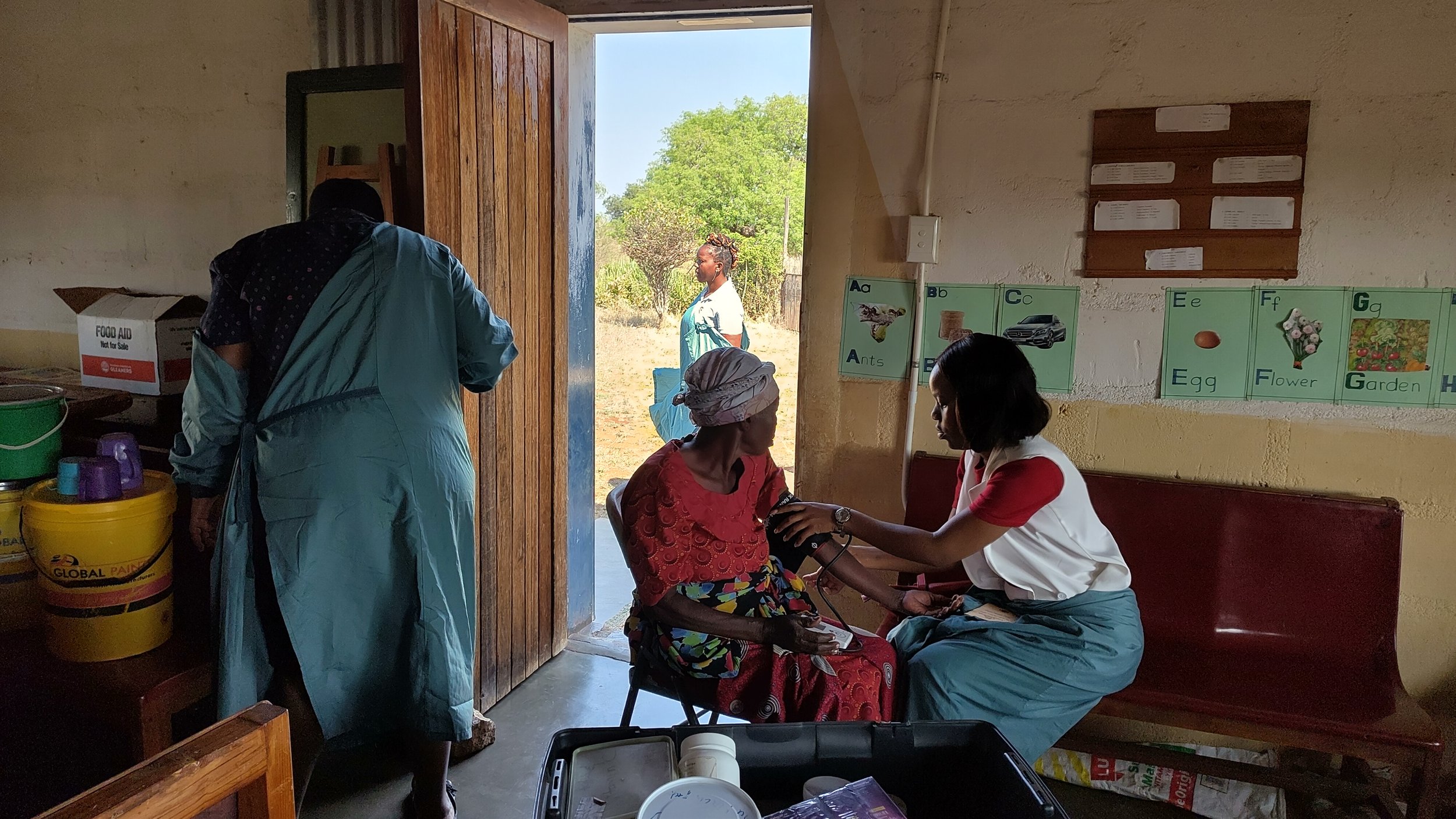
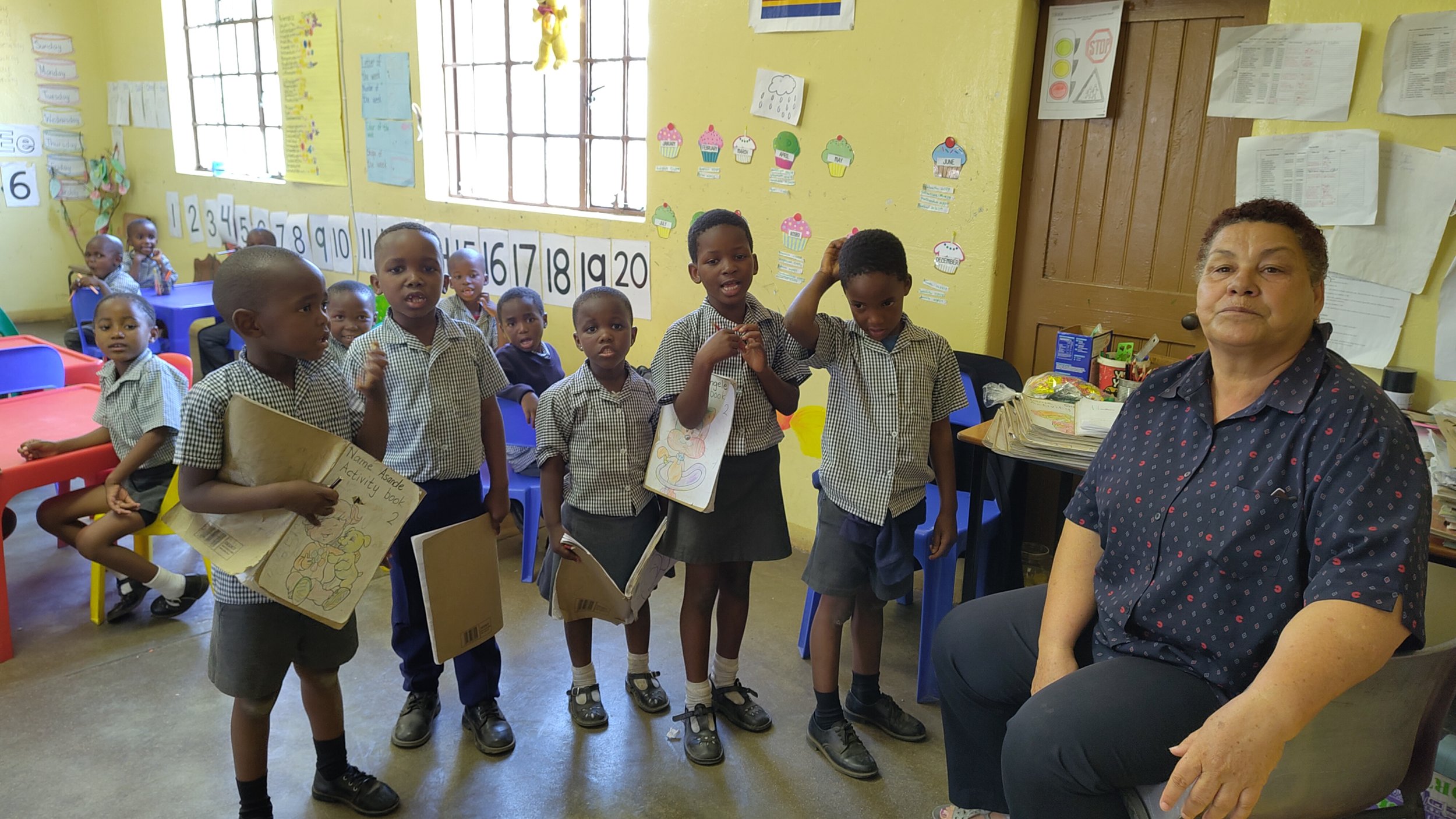
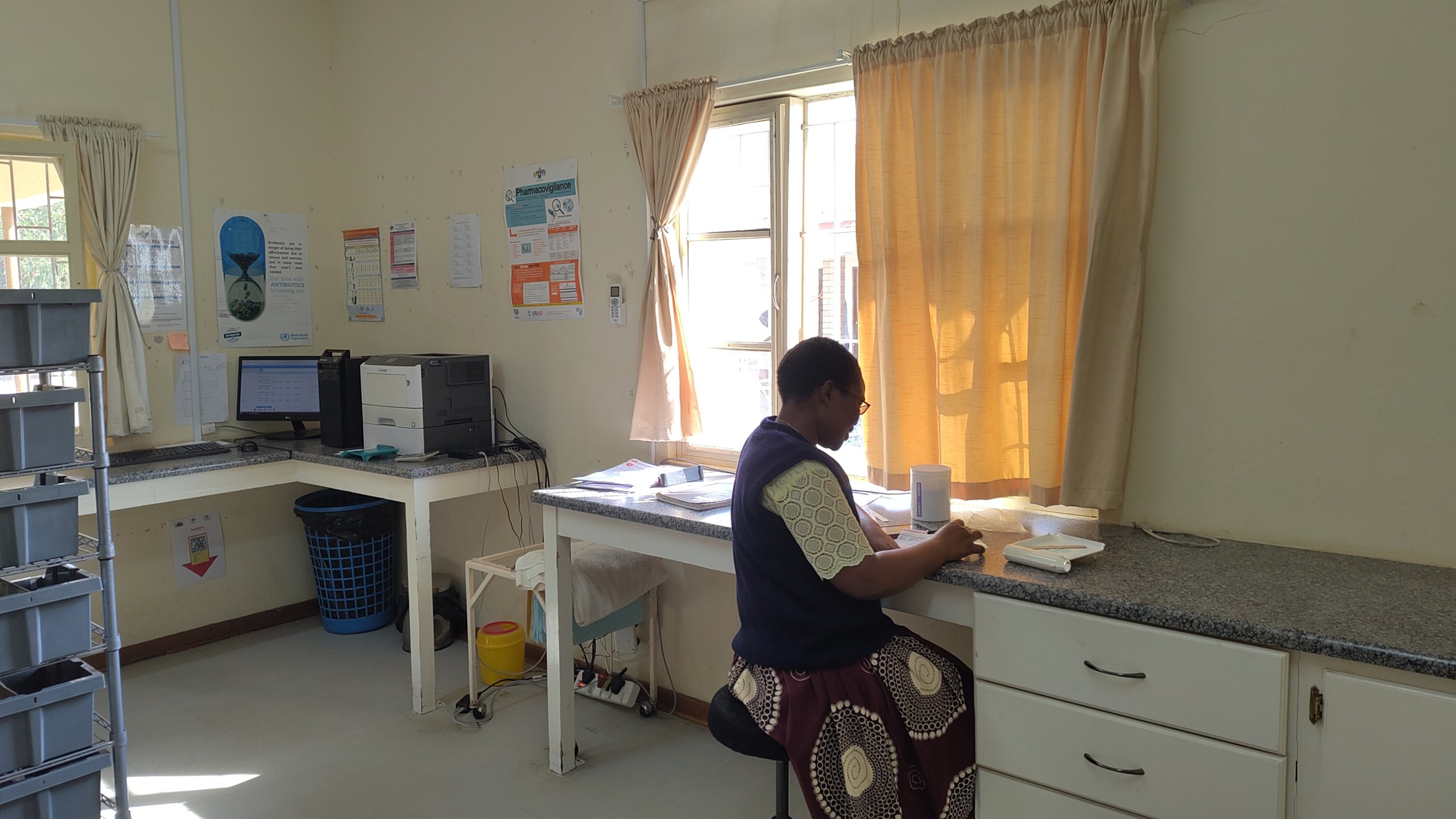
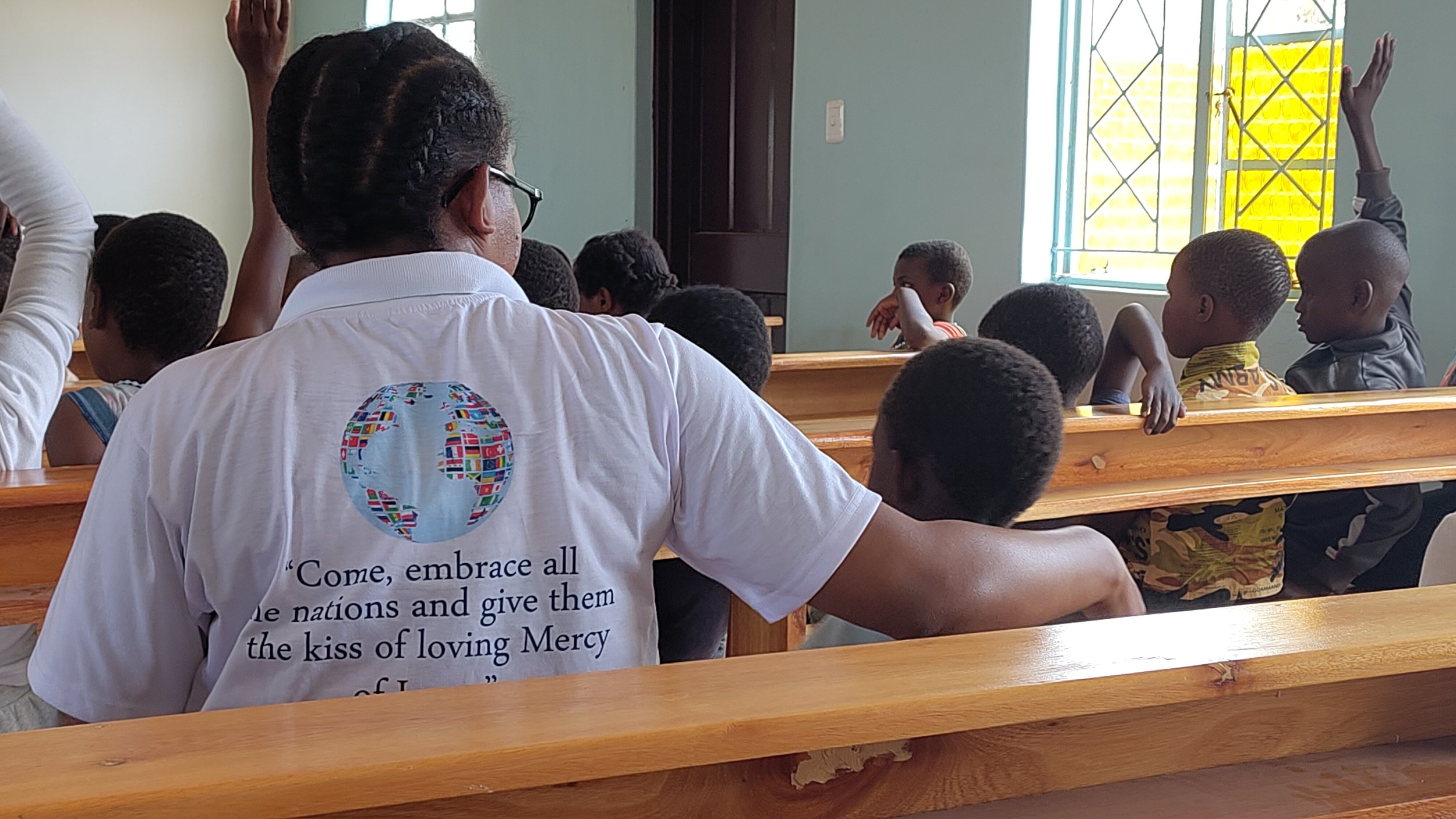
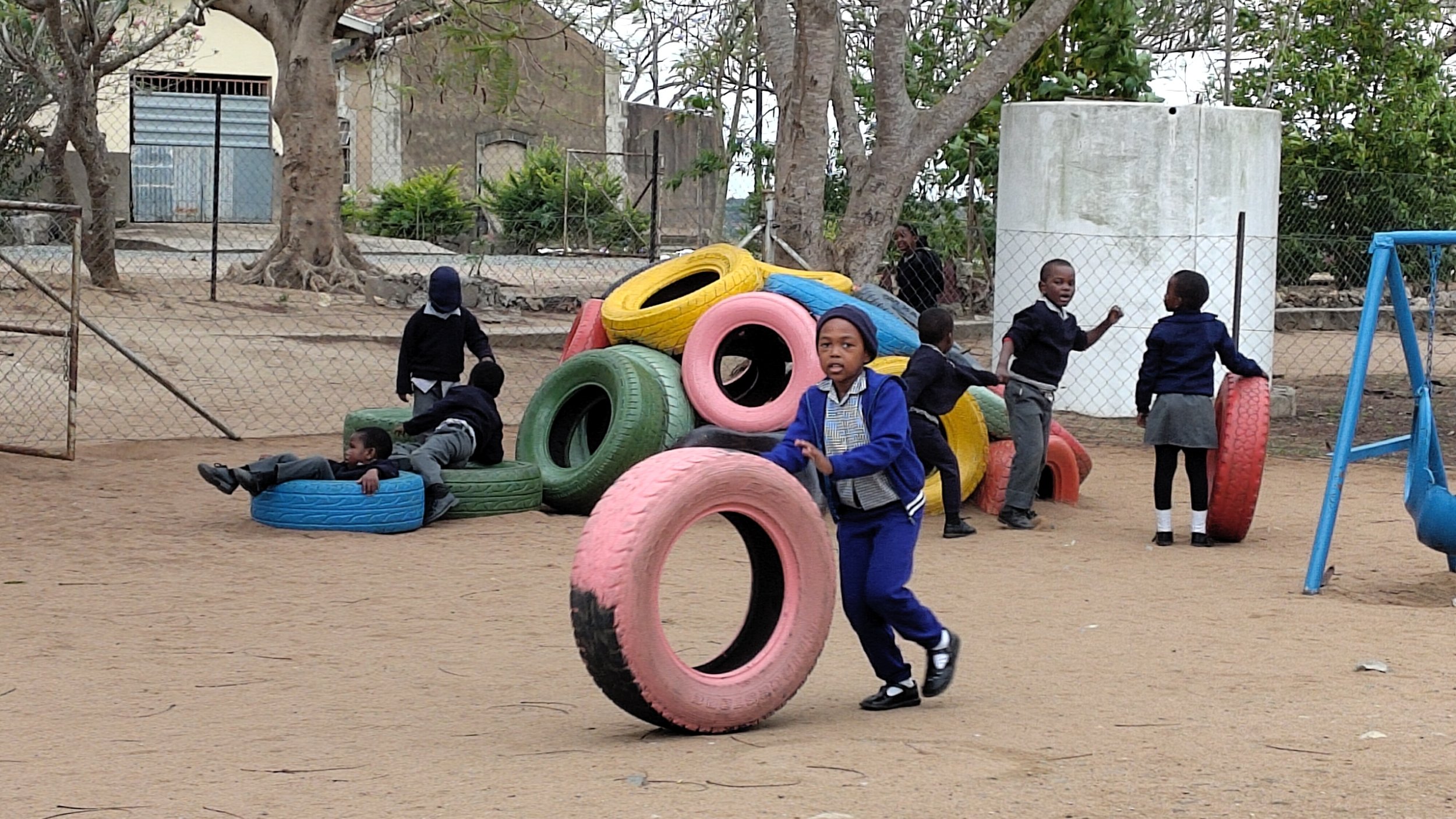
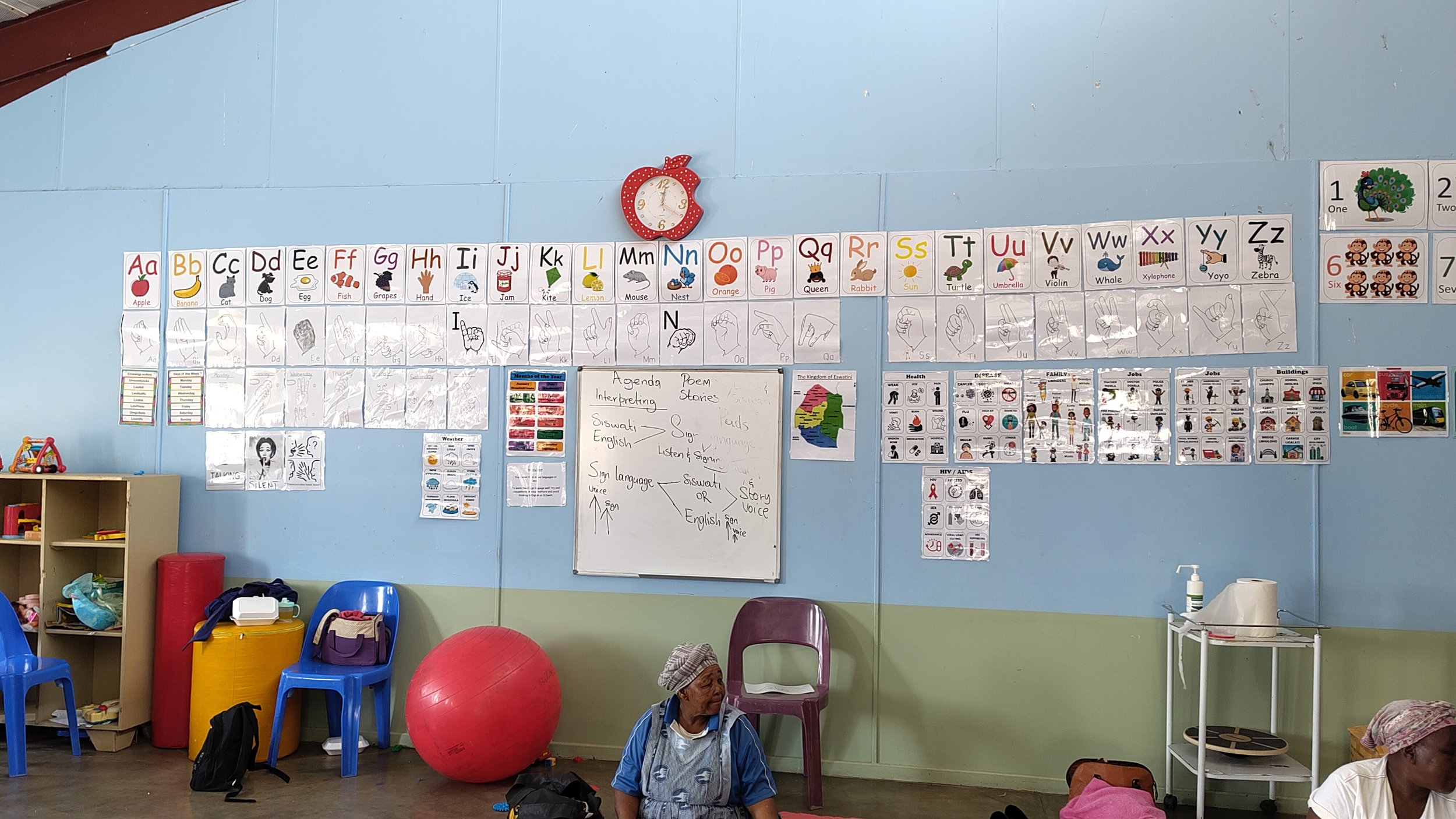
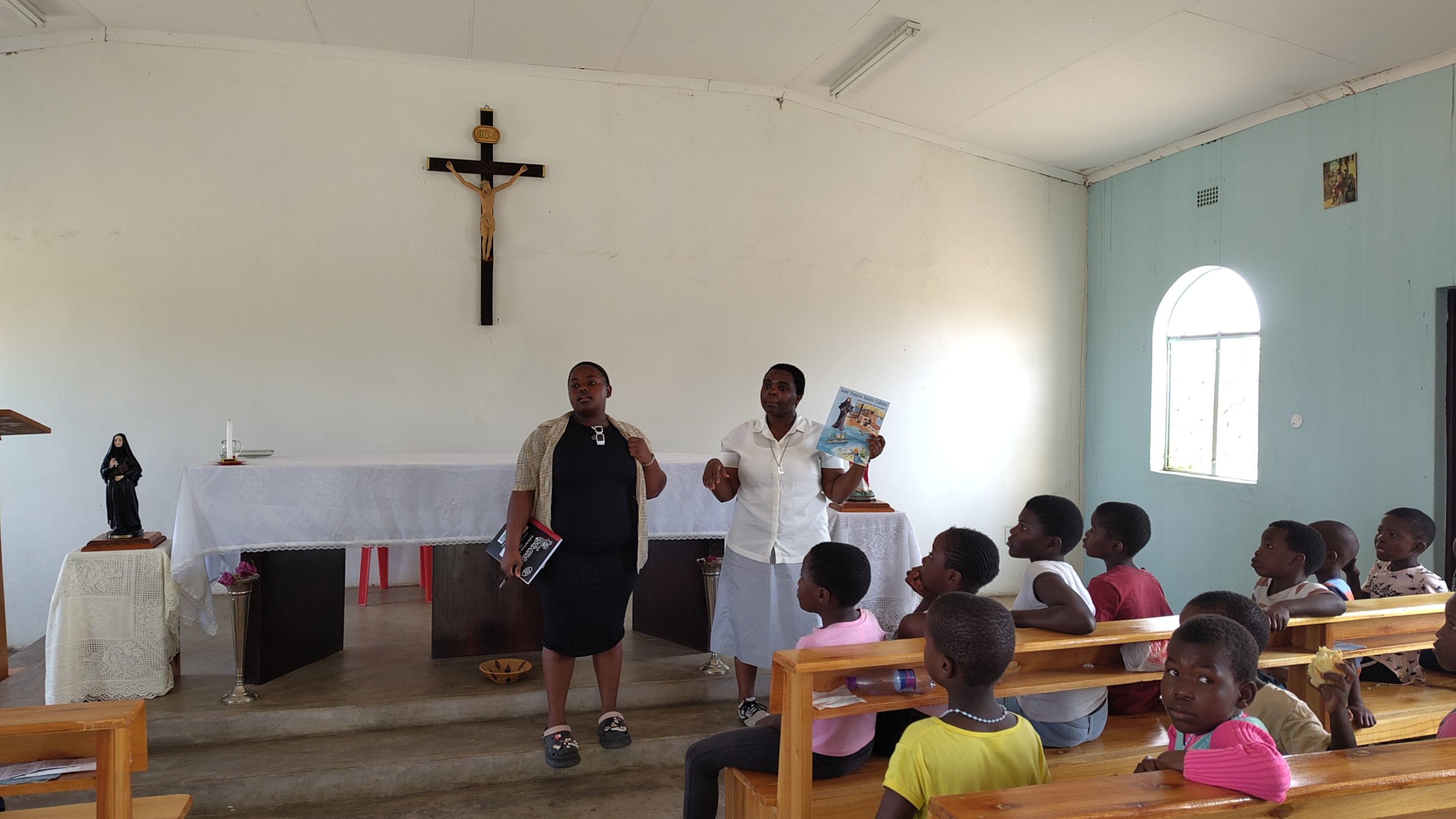

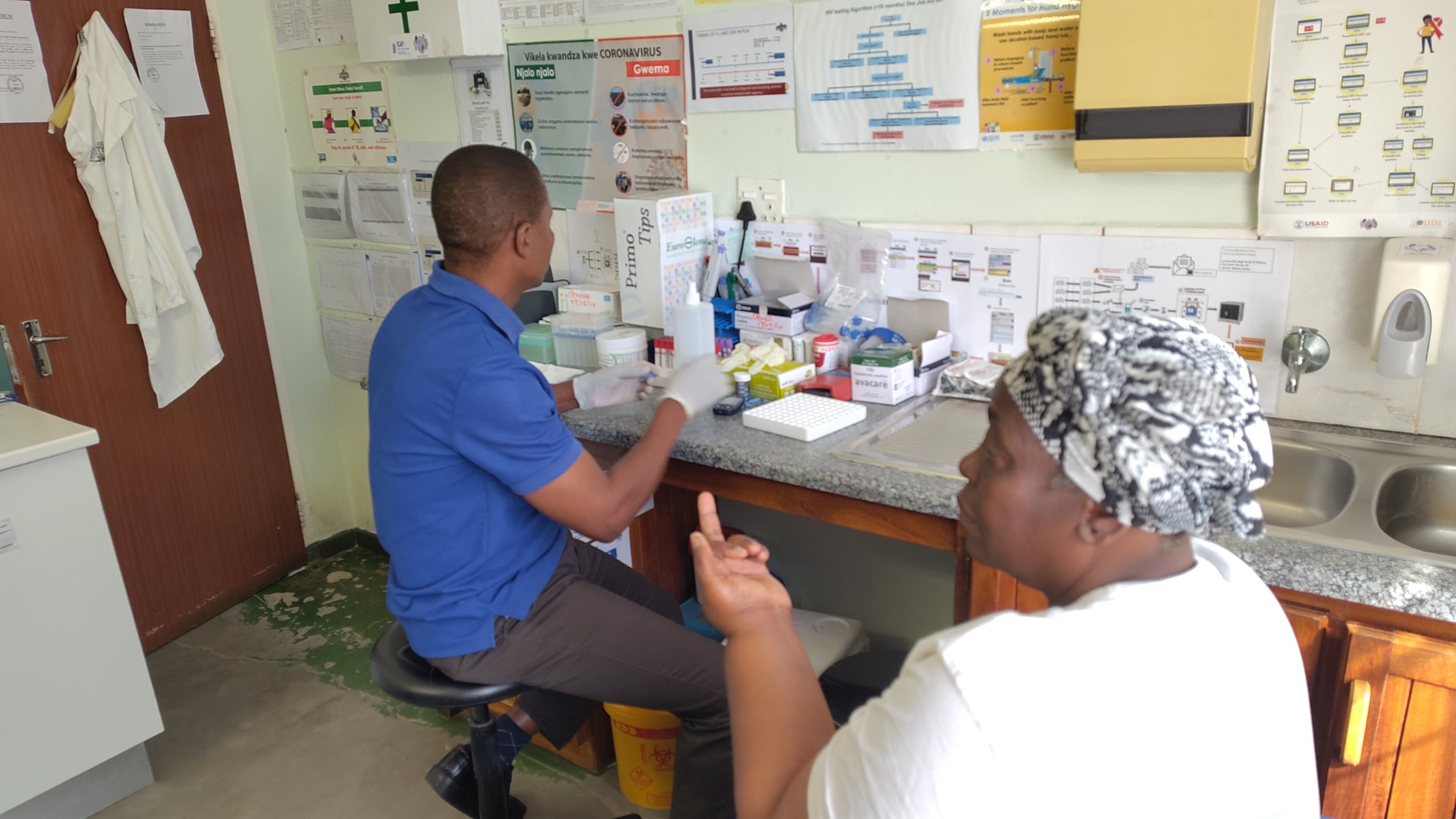
CABRINI MINISTRIES ETHIOPIA
Cabrini Ministries Ethiopia (CME) is a Catholic community-based organization located in Dubbo (Wolayta zone, South Ethiopia Region). CME serves rural communities in Boloso Sore Woreda and Damot Sore Woreda.
Established in 2019, it brings forward the work the Missionary Sisters of the Sacred Heart of Jesus started when they arrived to Dubbo in 1999.
In order to adapt the interventions to the shifting needs and priorities, and to ensure long-term community development, CME embarked in a participatory strategic planning process to review and orient its operations to be more effective and achieve a sustainable impact.
-
Partnering with the most vulnerable for a bright future.
-
To share the love of Jesus Christ with the most vulnerable families in communities through the provision of holistic integrated care in social services, education and health care.
-
Service
Hope
Unity
Empathy
Love
Courage
“Truly I tell you, whatever you did for one of the least of these brothers and sisters of mine, you did for me”.
Matthew 25:40

-
Parents of children with SAM are supported to increase and diversify their sources of income, ensuring they can provide for their families’ nutritional needs.
While their children are admitted to BJCL, parents and caregivers attend health and nutrition education to learn how to provide a balanced diet. After discharge, they are enrolled in a training program to learn entrepreneurial skills and supported to start an income generating activity.
-
The IMCH is an outreach community health education program targeting around 2000 women yearly in 36 villages around Dubbo, to provide women with information about basic health services, such as antenatal and postnatal care, immunization, nutrition, prevention of mother to child HIV transmission, etc.; to promote healthy behaviors and to facilitate access to healthcare services.
-
BJCL is a residential rehabilitation center for malnourished children. It can host up to 40 children during their recovery from Severe Acute cases of malnutrition (SAM).
While admitted, children between 6 months to 7 years, receive proper nutrition, medical care and education support until they can be reintegrated into their families.
Children below 6 months with SAM are followed by BJCL staff through the Outreach Therapeutic Program (OTP), so that they can be breastfed at home by their mothers.
-
Education interventions aim at helping under-privileged children and households access quality primary education, increase literacy levels, and increase the number of children that progress to the next level.
-
CME manages 3 preschools, where children originating from vulnerable households are given priority of enrollment. Children attend school 5 days a week and receive 2 nutritious meals every day.
All schools adopt a Montessori methodology for the first 2 years, while the third year follows the national preschool curriculum.
Sacred Heart Preschool, Areka, 175 pupils in 4 classes;
St. Mary Preschool, Dubbo, 247 pupils in 6 classes;
St. Frances Xavie Cabrini Preschool, Wallacha, 121 children in 3 classes
-
Children in school age who recover from SAM are referred to education services, to ensure their proper physical and cognitive development. CM supports their families to cover school fees and other school expenses, to ensure they attend school and complete their education. Every year around 150 children and youth are supported.





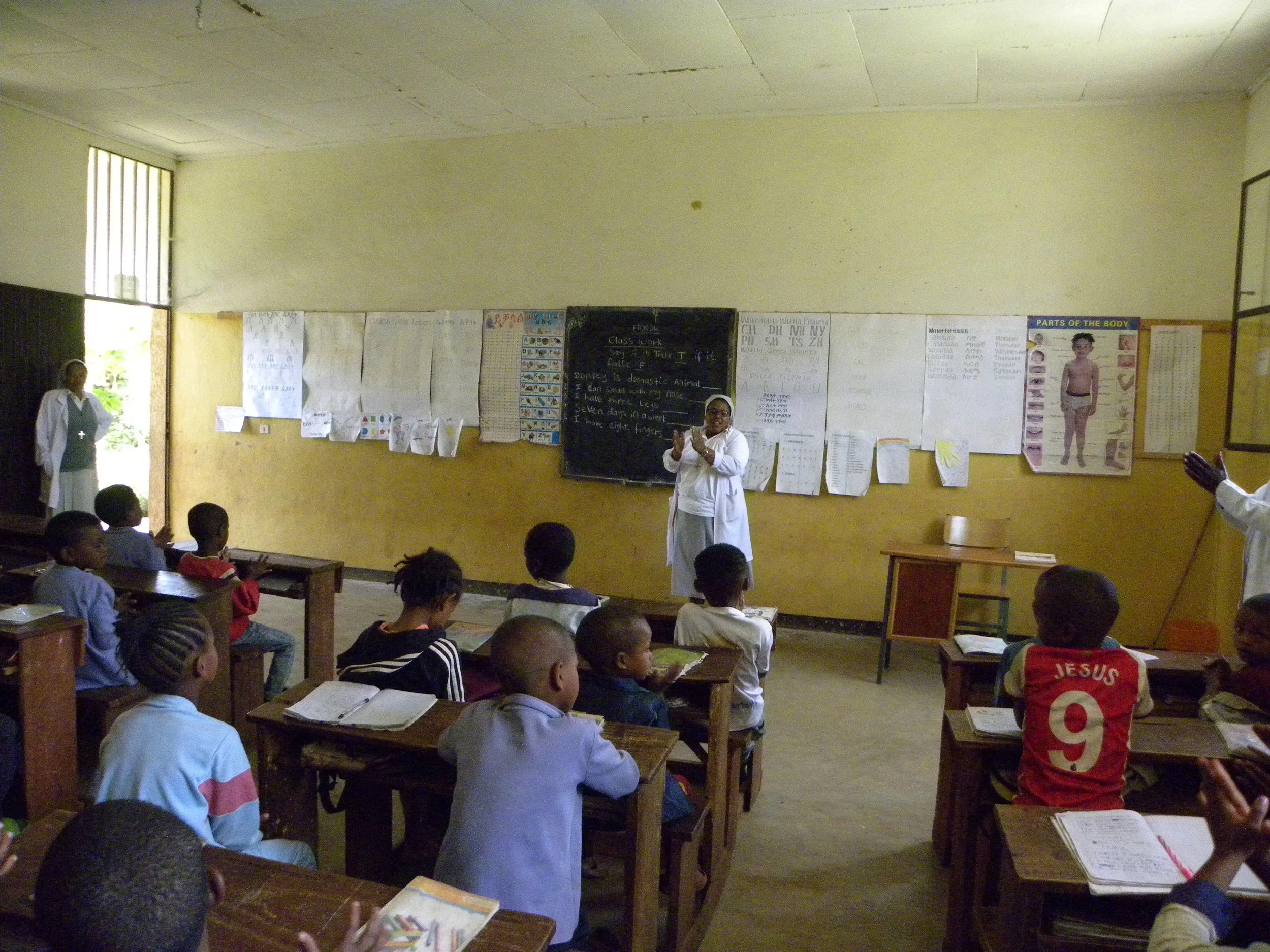



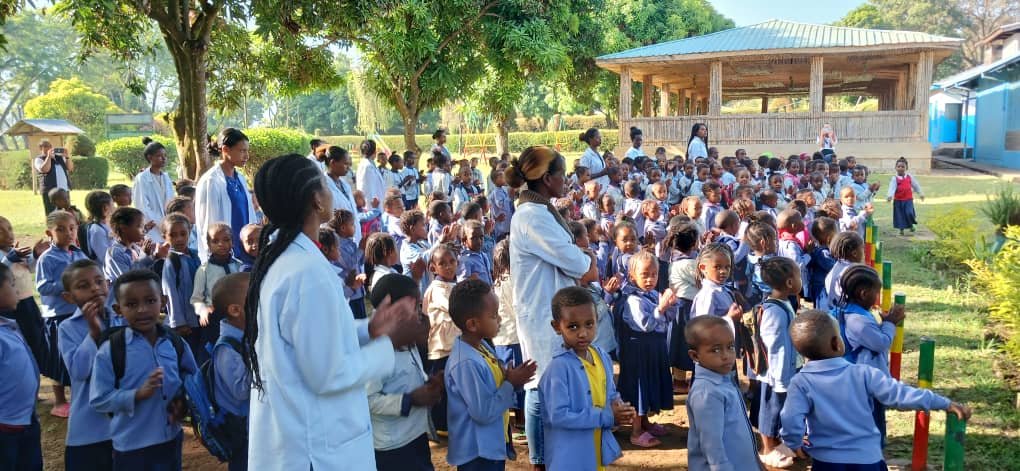
ST. MARY HOSPITAL
St. Mary Hospital is a 100-bed primary hospital located in Dubbo, Boloso Sore Woreda, Wolayta zone, South Ethiopia Region (former SNNPR), Ethiopia, and within the Apostolic Vicariate of Soddo. The hospital is managed by the Missionary Sisters of the Sacred Heart of Jesus (MSC).
-
To support life, prevent disease, alleviate suffering and heal illnesses in a holistic approach which involves the physical, psychological, spiritual and environmental aspect of the individual person.
-
To achieve a full functioning of general hospital services, curative and preventive care, with continuous monitoring of efficiency and quality, and accessible to the more vulnerable population of Boloso Sore Woreda and its surrounding area in the Wolayta Zone.
-
Empathy
Inclusion
Integrity
Unity
Accountability
-
The OPD offers General ER, Surgical, Medical, MCH, Under five yr. OPD services, in addition to daily health education sessions.
Every year more than 25,000 people access OPD services
-
The hospital has 6 wards: Emergency, Maternity, Pediatrics, Medica, Surgery and NICU. Every year around 6,000 people are admitted to St. Mary Hospital to receive care.The hospital has 6 wards: Emergency, Maternity, Pediatrics, Medica, Surgery and NICU. Every year around 6,000 people are admitted to St. Mary Hospital to receive care.
-
The outreach program targets Afama Mino, a village 15 km from Dubbo. It focuses on delivering crucial health education in various key areas, including malnutrition, reproductive health, safe parenting and pregnancy, vaccination, and cervical cancer screening and treatment.The outreach program targets Afama Mino, a village 15 km from Dubbo. It focuses on delivering crucial health education in various key areas, including malnutrition, reproductive health, safe parenting and pregnancy, vaccination, and cervical cancer screening and treatment.










-
Transformed and thriving refugee and host communities.
-
Sharing the love of Jesus in the Spirit of St. Frances Xavier Cabrini, to all, through comprehensive, integrated human promotion to the most vulnerable in refugee and host communities
-
Dignity
Integrity
Unity
Courage/Audacity
Passion/Zeal
HEART MINISTRIES UGANDA
MSC Heart Ministries is a Catholic community-based organization based in Dzaipi, in the northern part of Uganda.
Heart Ministries is currently serving vulnerable people in Dzaipi and in Pagirinya refugee settlement, providing education, pastoral care, and women's promotion.
-
Heart Ministries works with various groups at Dzaipi Parish and in the chapels established in the refugee settlements.
Faith is a driving force for refugees, who contributed to build chapels within the settlements to join with their community of origin, pray together, and support their fellow community members.
Heart Ministries meets with various groups in the chapels (catechists, youth, women, etc.) to provide formation, guidance and material support for maintaining the chapels.
Heart Ministries is prioritizing pastoral work with youths, the majority of the population in the settlements and in the host communities, and those who may be more affected by lack of engagement if not in school nor working.
Heart Ministries works with about 600 youth in 8 chapels and 1 parish to provide formative and recreational activities.
-
Women are often alone in the refugee settlements, and they have little support in taking care of their family needs. With limited resources and few opportunities for stable employment, they often struggle to provide for their children.
Heart Ministries works with women groups and provides formation, entrepreneurial support, vocational training and seed funding to start small income generating activities.
-
Cabrini Center is a multipurpose hall in Pagirinya refugee settlement. Established in March 2023, it hosts various activities to empower women.
Every year about 200 women attend vocational and entrepreneurship training (e.g. tailoring, embroidery, soap making), as well as receive additional support (e.g. literacy, counseling) to ensure their wellbeing and strengthen their capacity to become self-reliant.
-
Education is a priority for the people in Dzaipi and the refugee settlement. For them it is the key to break the cycle of poverty and hope for a better future for themselves and their children.
Children and youth, in fact, face many challenges in accessing quality education. Families often cannot afford to enroll their children in school because of high school fees and lack of financial resources to pay for uniforms and other school material. Moreover, overcrowded classrooms, with up to 70-100 students, and scarce and low-quality school feeding, do not allow a conducive learning environment.
-
Children below the age of 18 represent 61% of the total refugee population in Uganda, children in preschool age are 30% of them.
The number of children out of school is high for several reasons: on the one hand, parents and guardians have limited financial resources to pay for school fees, uniforms, feeding and school materials, on the other hand few classes are available compared to the number of children in school age.
In spite of high costs and the sacrifice needed to send children to school, parents are aware of the importance of education for children and youth to succeed in life and have a future outside the refugee camp.
Holy Family is a community preschool built on church land in Pagirinya refugee settlement.
Heart Ministries helped renovating the school, and is currently s contributing to the payment of the teachers' salaries and school materials, and supporting the school feeding program. Parents contribute to the school expenses with school fees, according to their financial capacity, and with in-kind contributions towards the pupils' school feeding program.
The school has 4 class rooms and hosts 160 children from 3 to 6 years of age every year. Children from the settlement attend school every morning from Monday to Friday and get a nutritious meal. The school employs 8 teachers, 2cooks and 2 guards.
-
Youth in Dzaipi, both Ugandan and South Sudanese living in the refugee settlements, face many challenges in completing secondary education. School fees are very expensive and often unaffordable for families, who are also unable to provide the required food contribution or buy uniforms, school material and books, so many of them drop out of school. Given the current economic situation in the country, school fees also keep increasing each term.
Students who manage to stay in school, often walk long distances to reach the schools and have to work in the fields to help their families get enough food, so they have limited time to study once back home; households usually have no power, so it is impossible for them to study at night. Both obstacles affect their school performance.
In order to address the situation, Heart Ministries has started sponsoring youth to complete their secondary education in local schools.
Every year Heart Ministries provides financial support to cover school fees, materials, uniforms, and feeding to about 25 youth. Each of them is supported until completion of the secondary school cycle, provided they pass to the following grade.
Students and their families are engaged throughout the period they are sponsored: youth are followed by a mentor and they commit to attend school regularly and to volunteer during school breaks in some of the sisters’ services; parents commit to provide a financial contribution according to their capacity and to the to meet the tutor once per quarter to follow up on their children’s progress.
Each year new students, both girls and boys, are enrolled in the program after an attentive screening and keep in the program until graduation.
Schools are chosen based on the interests of the students and their location: schools nearby Dzaipi are prioritized to avoid families incurring additional costs for transport and/or accommodation.
